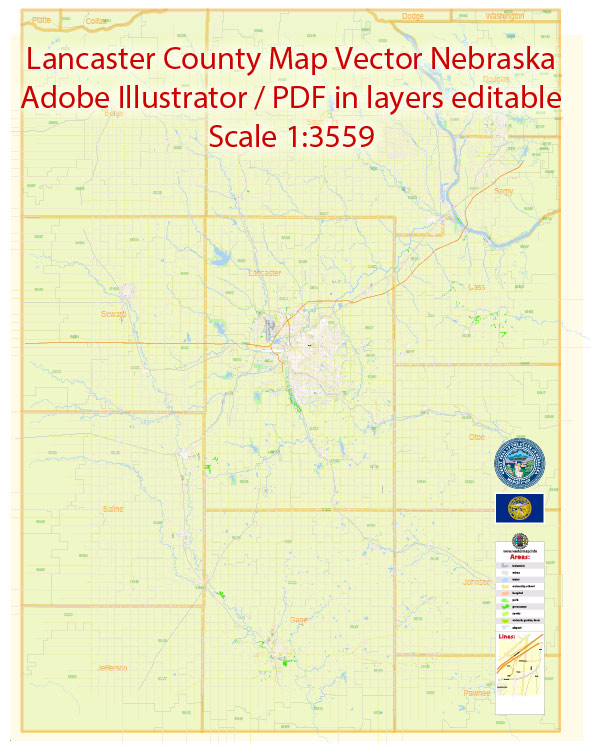Lancaster County, Nebraska, like many areas in the United States, relies on a variety of water resources to meet its needs for drinking water, agriculture, industry, and recreation. Here are some key points about water resources in Lancaster County:
- Groundwater: Groundwater is a significant source of water in Lancaster County. The county is part of the High Plains aquifer, also known as the Ogallala aquifer, which is one of the largest and most important groundwater sources in the United States. It provides water for irrigation, municipal use, and industrial purposes.
- Surface Water: The county is also home to numerous streams, rivers, and reservoirs. The largest river in the area is the Platte River, which flows through the county and serves as a source of water for both agriculture and recreation.
- Municipal Water Supply: The city of Lincoln, which is the county seat, primarily relies on groundwater for its municipal water supply. Lincoln Water System (LWS) is responsible for managing and supplying water to the city and its surrounding areas.
- Agriculture: Agriculture is a significant water user in Lancaster County, with irrigation being a major component. Farmers in the area use groundwater and surface water for crop irrigation, particularly for corn and soybean production.
- Recreational Water Use: The various water bodies in Lancaster County, including lakes and rivers, offer opportunities for recreation, such as fishing, boating, and swimming.
- Water Quality: Like many areas, Lancaster County faces challenges related to water quality. Agricultural runoff and urban development can introduce pollutants into water sources, which require monitoring and management to ensure safe and clean water.
- Conservation Efforts: Various organizations, including local and state government agencies, are involved in water resource management and conservation efforts. They work to address issues like water quality, water quantity, and sustainable management practices.
- Climate Considerations: Water availability in the region can be influenced by climate patterns and variations. Drought conditions can affect water resources and impact agriculture and municipal water supplies.
It’s important for Lancaster County and its residents to manage and use these water resources in a sustainable and responsible manner to ensure a reliable water supply for the present and future. This includes conservation efforts, water quality monitoring, and responsible agricultural and industrial practices.


 Author: Kirill Shrayber, Ph.D. FRGS
Author: Kirill Shrayber, Ph.D. FRGS